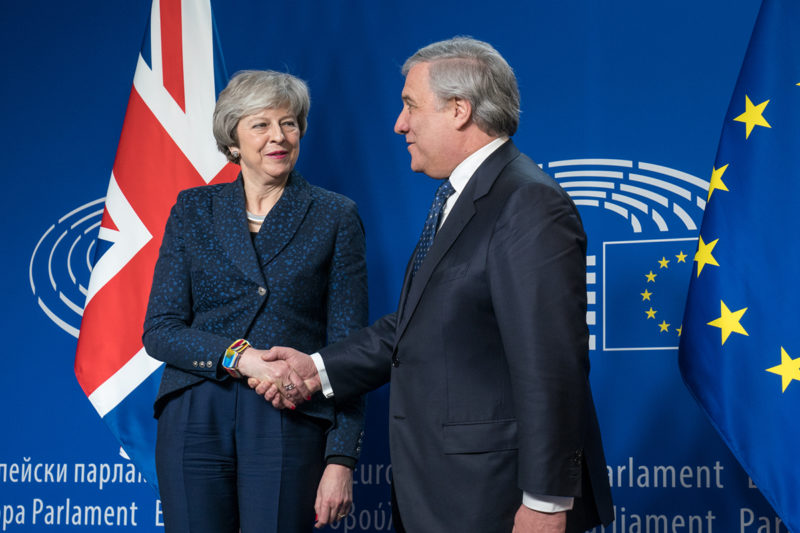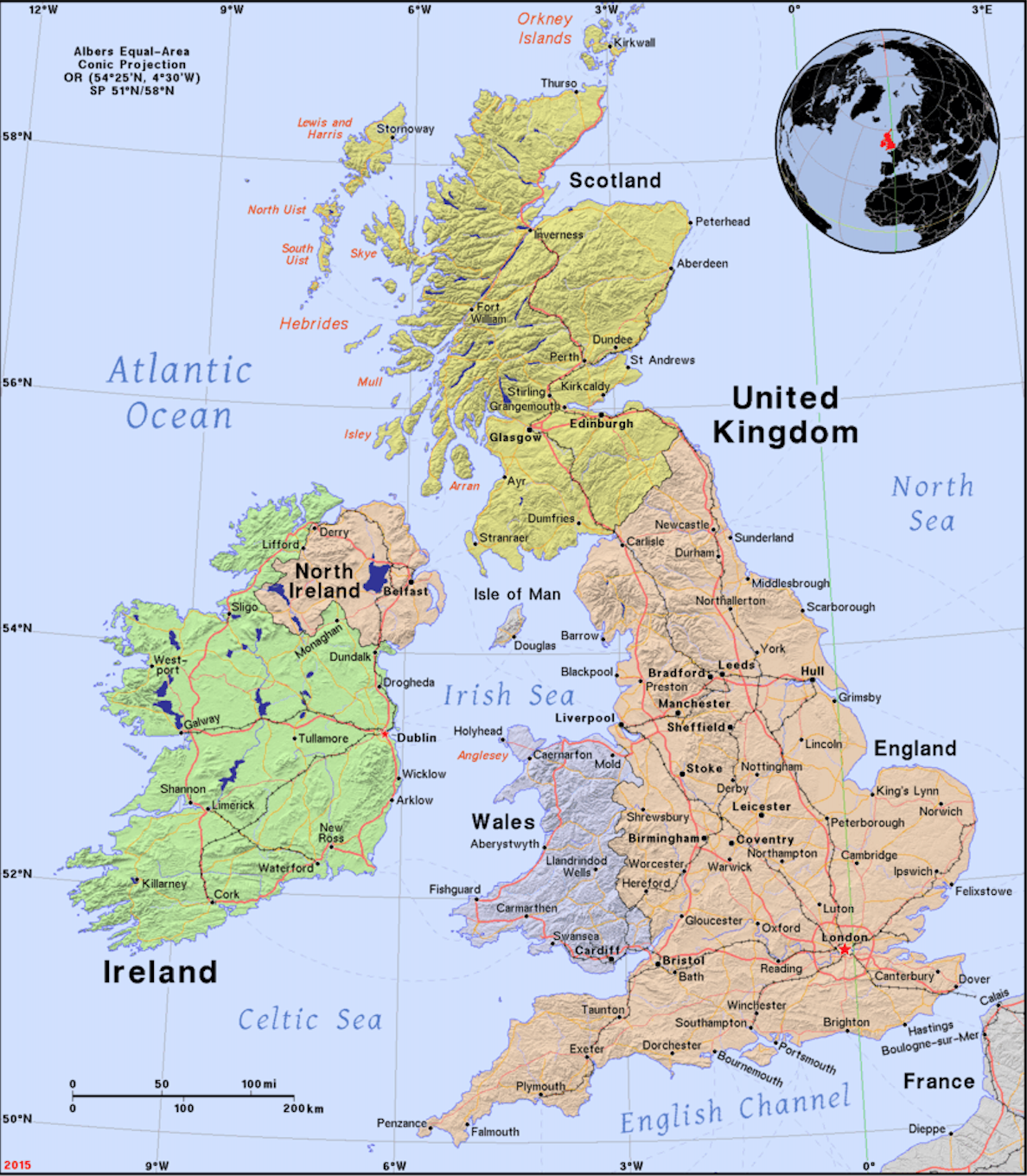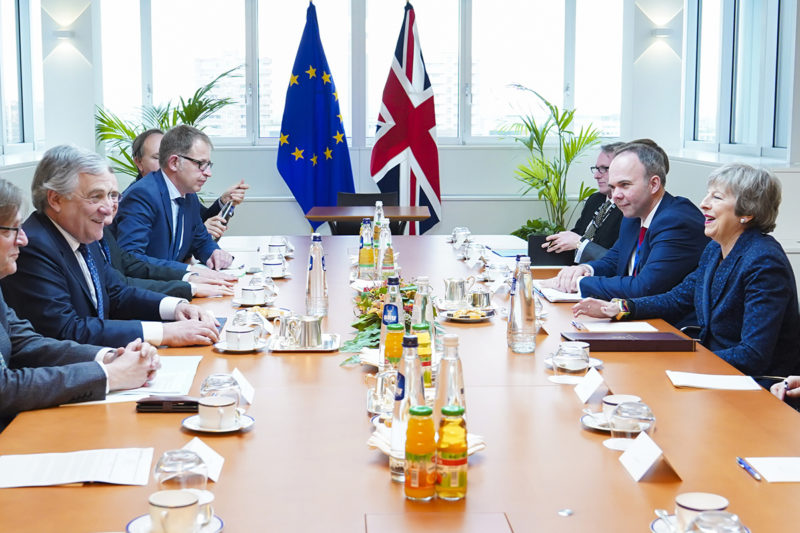Britain’s Brexit Imbroglio: ‘Nobody is Happy’
By Shepard Price
Reporting Texas

Theresa May greets European Parliament President Antonio Tajani. Photo by Pietro Naj-Oleari/European Parliament

Zeynep Somer-Topcu
In June 2016, citizens of the U.K. voted via referendum to leave the European Union. The plan to leave the EU came to be known as Brexit – a combination of the words Britain and exit. Almost three years later, the separation has yet to happen. Squabbling among U.K. politicians on the political right, left and center, has been confused and at times brutal. On April 11, 2019 after protracted negotiations, prime minister Theresa May and her EU counterparts agreed to extend to Oct. 31 the deadline for the British Parliament to ratify an exit deal. Given Brexit’s potential impact on Britain, Europe and the global economy, Reporting Texas asked Zeynep Somer-Topcu, associate professor of government at the University of Texas at Austin, to sort through the complications. Herewith excerpts:
On Brexit bottlenecks:
The two sides of the referendum were ‘Stay in’ and Brexit, and Conservative politicians led both. [Then-prime minister David] Cameron led stay in and [then-foreign minister] Boris Johnson led Brexit. [Brexit narrowly won, Cameron resigned and] the whole process fell in Theresa May’s hands. Hard Brexiteers wanted to leave the EU, severing all ties. Soft Brexiteers wanted an even softer Brexit than [May’s] deal suggests Of course, “Remainers” are not happy, so nobody is happy. May is also having to deal with a divided [Conservative] party, which is why the extension was put in place.
On the deal in front of Parliament:
It basically gives the U.K. an additional two years to negotiate all the terms to fully break away from the EU, a good thing, because there are so many issues to resolve. But if those things can’t get negotiated in two years, Northern Ireland [part of the U.K.] will be in the customs union and single market with the EU, a special status, which means there won’t be a border between the Republic of Ireland and Northern Ireland. [See map.] Northern Ireland will just [stay] in the EU. That’s not good enough for [those who want] Northern Ireland to break away … from the EU.

On the “hard border” sticking point:
The 1998 Good Friday agreement, which solved the conflict in Northern Ireland … states it’s unconstitutional to create a hard border between [The Republic of] Ireland and Northern Ireland. Right now, there are no borders, cars are free to cross, people are free to cross. Hundreds of people each day cross that invisible line each day. Nobody wants a hard border.
An open border means that Northern Ireland has to follow EU standards and regulations and they have to stay in the customs union and single market of the European Union. They would have a different status than the rest of the U.K. That’s dangerous for the unity of the U.K., and that’s why [some] people don’t want Northern Ireland to have special status. But again, they can’t have a hard border, so they’re left in this quandary.
On why Brexit happened:
Short-term explanations are the economic crisis and increased immigration rates due to [Europe’s long-running] refugee crisis. Voters who voted to leave were not very happy with how the EU was dealing with these crises. People who voted for Brexit were the most [negatively] affected by globalization and the European Union. Those who did well under the EU voted to stay in.
On Implications for the U.S.:
Right now, EU member states act together … in negotiations for trade agreements. If and when the UK leaves, [the UK] will sign their own trade treaty with the United States, so it will depend on what kind of treaty [is worked out.]
On Britain’s future stability:
People are afraid of another [global] economic crisis. Predictions by economists are if Britain stays in the EU … their GDP would slow down because of the global slow down. If they leave with a deal, it will be worse. And if they leave without a deal, it will be terrible. That’s because [the U.K.’s] main trade is with the EU … [Leaving] without a deal … means grocery bills will increase, medications will be hard to find [and] nobody knows what will happen with [the status of] EU citizens in the U.K. and U.K. citizens in the EU. As long as the U.K. can establish good trade relations with independent parties I think they can recover … Otherwise it’s very dangerous.

European Parliament President Antonio Tajani and EP Brexit coordinator Guy Verhofstadt receive British Prime Minister Theresa May to discuss the latest developments in the negotiations on the British departure from the European Union. Daina Le Lardic/European Union
On the EU’s future stability:
Some people argue [Brexit] is actually a good thing for the EU. Britain has been the biggest opponent [of calls for integrating] even further … [to] have this federal state of the European Union, this United States of Europe. Given the circumstances — the north is rich, south is poor, west is rich, east is poor — [proponents] don’t agree on how to solve problems. With growing anti-EU parties across Europe, they can’t really go further with or without the UK.
On possible economic dislocations:
Without a deal, the U.K. wouldn’t be able to export [freely] to the European Union. There will be different standards, different regulations, every good [would need] to be checked, so trade will really slow down. Right now, a truck can easily cross the [English] Channel … and goods will be on the market immediately. If Britain leaves the EU … there will be huge lines … and higher costs. That’s why the [U.K.’s] Labour [party] is pro-Soft Brexit, staying in the customs union and the single market.